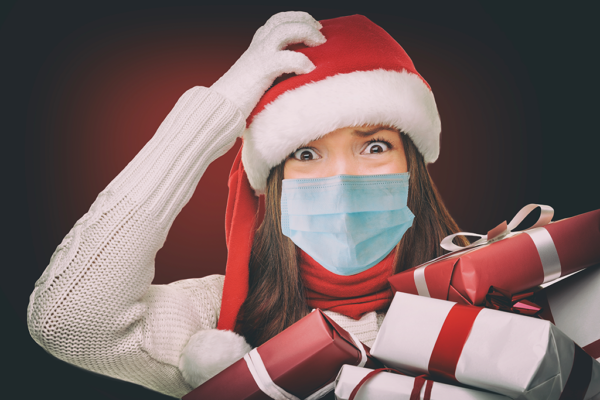Preventive Medicine
When the winter months arrive, we often find ourselves fighting the winter blues and trying to fight off the common cold and flu bugs. Research is now showing that having low vitamin D levels could be a key factor in preventing seasonal affect disorder (SAD) as well as the common cold and flu.1,2,3 Since many of us spend more hours indoors than outdoors, use sunscreen and clothing to protect ourselves from the sun, and some individuals follow moral and religious codes that call for head to toe clothing coverage, low vitamin D levels have become a common problem throughout the world. 4
Vitamin D is the ‘sunshine vitamin’, meaning humans have typically absorbed vitamin D from exposure to mid-day sunshine. However, there are a few food sources of vitamin D such as cod liver oil, fatty fish such as salmon, tuna and mackerel, dairy products from grass-fed cows and fortified milk products, egg yolks from pasture-raised chickens, and mushrooms that are specially treated with ultraviolet light. Besides mood and immunity boosting benefits, more and more evidence is showing that low vitamin D status is also associated with obesity, metabolic syndrome, insulin resistance, infection, allergies, cancers, and cardiovascular disease. 5
Vitamin D levels can be assessed with a simple blood test and most researchers would agree that keeping your vitamin D 25-hydroxy level around 35 ng/ml is a safe, healthy range.6 To achieve that, get a daily dose of 10 – 20 minutes of mid-day (10 am – 2pm) sunshine without sunscreen, depending on how dark your skin is (darker skin requires more sun exposure). Ideally you should get out of the sun before your skin starts to burn and apply sunscreen if you intend to stay in the sun longer. Eating your lunch outside or going for a quick mid-day walk is a perfect way to get a healthy dose of sunshine. Alternatively, purposefully consuming foods that contain vitamin D or taking a vitamin D3 supplement of up to 2 – 4000 IU/day, depending on vitamin D status, may be needed. Since vitamin D is fat soluble, and in nature is typically only found in food sources naturally high in fat, it is important to take vitamin D supplements with a source of healthy fat such as quality dairy products, nuts, seeds, avocado, coconut or olive oil. And newer research is showing that to avoid vitamin D toxicity when taking higher levels of supplements, it is important to ensure adequate intake of foods rich in vitamin A as well as vitamin K from dark, leafy greens, fermented vegetables (i.e. sauerkraut, natto), seafood, organ meats and dairy fats (butter, cheese, whole-milk yogurt) from grass-fed animals.7
So if you find yourself curled up on the couch surrounded by a pile of used Kleenex this winter it may be wise to have your vitamin D levels tested and, if necessary, take the steps needed to bring your vitamin D status up to a normal level. Your body and your mind will thank you!
References:
- Vitamin D and Influenza. Maria E. Sundaram and Laura A. Coleman. Adv Nutr. 2012 July
- Obesity, influenza virus infection, and hypovitaminosis. D. Mascitelli L, Grant WB, Goldstein MR. J Infect Dis. 2012 Nov.
- Vitamin D3 enhances mood in healthy subjects during winter. Lansdowne AT, ProvostSC. Psychopharmacology (Berl). 1998 Feb.
- Vitamin D: beyond bone. Christakos S, Hewison M, Gardner DG, Wagner CL, Sergeev IN, Rutten E, Pittas AG, Boland R, Ferrucci L, Bikle DD. Ann N Y Acad Sci. 2013 May.
- Is vitamin D deficiency a major global public health problem? Palacios C, Gonzalez L. J Steroid Biochem Mol Biol. 2013 Nov.
- http://www.webmd.com/osteoporosis/features/the-truth-about-vitamin-d-why-you-need-vitamin-d
- http://www.vitamindcouncil.org/about-vitamin-d/vitamin-d-and-other-vitamins-and-minerals/
About the Author:
Jennifer received her Master’s degree in Exercise Physiology and Gerontology Certificate from the University of Georgia and her undergraduate degree in Kinesiology from California State University, Hayward. She is an ACSM Registered Clinical Exercise Physiologist and Certified Health Fitness Specialist. Besides working for BaySport, Jennifer has worked as an exercise physiologist at Duke University’s Center for Living, and was a graduate assistant in the Cardiac Rehab and Adult Fitness program at the University of Georgia. In her 15+ years with BaySport, Jennifer has been providing wellness programming and counseling, fitness center management, personal training, group exercise class instruction, health screenings, and fitness testing. In her free time she enjoys playing almost any sport and enjoying the great outdoors.



